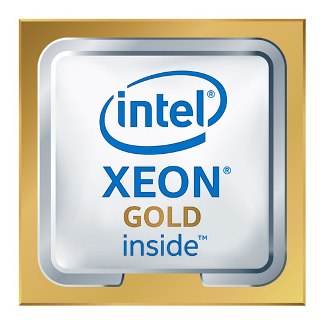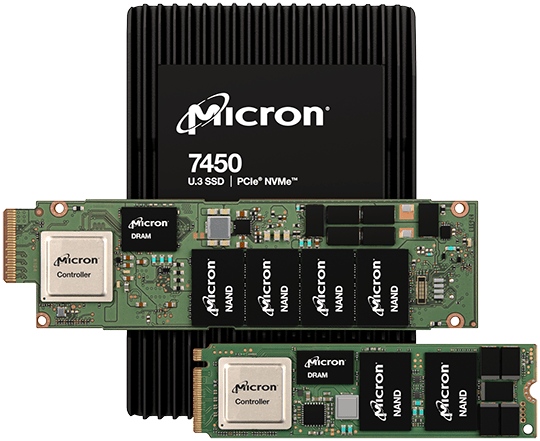OpenMetal’s XL v4.0 bare metal dedicated servers with 5th Gen Intel Xeon Gold processor have the following specifications out of the box:
- Processor: 2x Intel Gold Xeon 6530
- Storage: 4X6.4TB Micron 7450 MAX NVMe
- RAM: 1TB DDR5-5600
- Network: 2X10Gbit
- Egress: 6gbps
The XL v4.0 can be purchased as a bare metal server or as part of an on-demand hyper-converged three server hosted private cloud with Ceph powered by OpenStack.
Bare Metal Dedicated Servers powered by 5th Gen Dual Intel Xeon Gold 6530 Processor

The Intel Xeon Gold 6530 Processor, part of the 5th Generation Intel Xeon Scalable Processors family, features 32 cores, 64 threads, and a 2.1 GHz base frequency that can turbo up to 4 GHz. It supports DDR5 memory up to 4 TB across 8 channels, has a 160 MB cache, and a TDP of 270W. Designed for server and enterprise conditions, it supports PCIe 5.0, Intel’s Deep Learning Boost, and various security technologies like Intel SGX and Intel TME. For more detailed specifications, please visit the Intel website.
Advanced Technologies
The Intel Xeon Gold 6530 Processor incorporates several advanced technologies aimed at enhancing performance, security, and scalability.
These include Intel Deep Learning Boost for AI acceleration, Intel Speed Select Technology for flexible performance configurations, and security features such as Intel Software Guard Extensions (SGX) for application code protection.
The processor also supports PCIe 5.0 for faster I/O throughput and Intel Total Memory Encryption for comprehensive memory data encryption.
Security and Reliability
The Intel Xeon Gold 6530 Processor focuses on robust security and reliability features.
These include Intel Software Guard Extensions (SGX) for secure enclave usage, Trust Domain Extensions (TDX) for confidential VM usage, Intel Total Memory Encryption (TME) for comprehensive memory data encryption, and Intel Platform Firmware Resilience (PFR) for protection against firmware attacks.
Additionally, the processor is equipped with Error-Correcting Code (ECC) memory to detect and correct data corruption, ensuring data integrity and system reliability.
Differences and Similarities between Intel Xeon Gold’s 6530 and 6430 Processor
One of the key differences between the OpenMetal XL 4.0 Dedicated Server and OpenMetal XL 3.0 Dedicated Server is that the 4.0 has 5th Gen Dual Intel Xeon Gold 6530 Processor and the 3.0 has 4th Gen Dual Intel Xeon Gold 6430 Processor.
The Intel Xeon Gold 6430 and the 6530 processors are both powerful components designed for server and workstation applications, with several key similarities and differences in their features and capabilities:
Similarities:
- Core and Thread Count: Both processors have 32 cores and 64 threads, leveraging Intel’s Hyper-Threading Technology for efficient multitasking and parallel processing.
- Base Frequency: Each processor operates at a base frequency of 2.1 GHz, which ensures a solid performance baseline across various workloads.
- Memory Support: They support DDR5 memory, which offers significant bandwidth improvements over previous generations, enhancing overall system responsiveness and data handling capabilities.
- Security Features: Both CPUs are equipped with advanced security technologies, including Intel SGX (Software Guard Extensions) and Intel TME (Total Memory Encryption), providing robust protection against data breaches and other cyber threats.
- PCI Express (PCIe) Support: PCIe 5.0 support is present in both, ensuring compatibility with the latest high-speed peripherals and enabling faster data transfer rates between the CPU and other components like GPUs and SSDs.
Differences:
- Security Features: The 6530 adds to the suite of advanced security technologies with Intel® TDX (Trust Domain Extensions), providing confidentiality for entire VMs
- Thermal Design Power (TDP): The TDP of the 6430 is 270 Watts, indicating the maximum amount of heat generated under heavy use that the cooling system needs to dissipate. This is the same for both processors, reflecting their similar power consumption and cooling requirements.
- Cache Size: The 6430 comes with 60 MB of L3 cache, whereas the 6530 has a significantly larger cache of 160 MB, potentially offering better performance in cache-dependent applications by reducing the need to access slower main memory.
- Technology and Architecture: The 6430 is built on the Sapphire Rapids architecture and Intel’s 7nm manufacturing process, focusing on delivering balanced performance and efficiency for diverse workloads. In contrast, details specific to the 6530’s architecture were not directly compared but are part of the subsequent generation, potentially incorporating architectural improvements and optimizations.
Here is a table highlighting some of the differences between the two CPUs.
| Feature | Xeon Gold 6430 | Xeon Gold 6530 |
|---|---|---|
| Launch Date | January 2023 | December 2023 |
| Architecture | Sapphire Rapids | Emerald Rapids |
| Chip Lithography | Intel 7 nm | Intel 7 nm |
| Base Clock Speed | 2.1 GHz | 2.1 GHz |
| Max Turbo Frequency | 3.4 GHz | Up to 4 GHz |
| Cores/Threads | 32/64 | 32/64 |
| Cache | 60 MB L3 | 160 MB |
| TDP | 270 W | 270 W |
| Memory Support | DDR5-4400 | DDR5-5600, up to 4 TB |
| PCIe Version | PCIe 5.0 | PCIe 5.0 |
| Security | SGX | TDX |
In essence, while both processors share a solid foundation in core count, frequency, and memory support, the 6530’s larger cache size might offer advantages in performance for certain applications. Users should consider these differences alongside their specific workload requirements and budget constraints when choosing between these two options.
Go to Bare Metal Product Page
- Advanced Technology: Utilizes Micron’s state-of-the-art, 176-layer NAND technology.
- Performance: Offers industry-leading performance due to the combination of high layer count NAND and PCIe Gen4.
- Low Latency: Consistently delivers latency as low as 2ms for 99.9999% QoS.
- Versatility: Available in a broad range of PCIe Gen4 SSD form factors, catering to various platform functions.
- Capacity Range: Comes in capacities from 400GB to 15.36TB.
OCP NVMe SSD 2.0 Support: Enhances data center management and resolves common issues effectively. - Security Features: Includes next-generation security features for data protection.

For a comprehensive summary and more details, you can visit the Micron 7450 NVMe SSD page here.
OpenMetal chooses Micron 7450 MAX and PRO SSD with NVMe
V4 includes 2x960GB M.2 drives for booting and supports up to 10 additional drives. The default configuration uses Max drives, but OpenMetal offers the choice to opt for the Pro variant of the Micron 7450 Max, distinguishing mainly in Random Write and combined Random Read/Write IOPS. The Max model incorporates manufacturer-determined reserve space to manage write amplification, a common trait of modern NVMe SSDs. This reserved space aids in the drive’s garbage collection processes and compensates for wear, contributing to its 3DWPD specification, compared to the Pro’s 1DWPD.
| NVMe Drive >> | Micron 7450 PRO: U.3 | Micron 7450 MAX: U.3 |
|---|---|---|
| Capacities | 7.68TB (Available: 960GB – 15.36TB TLC) | 6.4TB (Available: 400GB – 12.8TB TLC) |
| Wear | 1DWPD | 3DWPD |
| PCIe Generation | Gen 4 | Gen 4 |
| Performance (upto) | ||
Sequential Reads (MB/s) | 6,800 | 6,800 |
| Sequential Writes (MB/s) | 5,600 | 5,600 |
| Random Reads (IOPS) | 1,000,000 | 1,000,000 |
| Random Writes (IOPS) | 215,000 | 400,000 |
| 70/30 Rand.Read/Write (IOPS) | 415,000 | 645,000 |
The Micron 7450 SSD comes equipped with a comprehensive suite of security enhancements refined through generations of Micron’s data center SSDs, tailored to safeguard against the evolving threats in today’s environment where data and applications are increasingly virtualized, cloud-based, or containerized.
- This includes a Secure Execution Environment featuring dedicated and isolated hardware for security tasks, ensuring physical separation as a defense mechanism against cyber-attacks. It offers flexibility in security deployment with both Self-Encrypting Drive (SED) and non-SED options, catering to diverse security needs.
- Adherence to industry security standards is evident with support for TCG Opal 2.01 and IEEE 1667, along with FIPS 140-3 Level 2 certification, making it easier to integrate into existing security frameworks.
- The SSD’s Asymmetric Roots of Trust allows for the easy revocation of authenticated root keys stored in immutable ROM, accommodating changing security requirements. Its robust asymmetric key support leverages NIST-approved algorithms and supports 208-bit/3072-bit RSA keys, ensuring strong encryption.
- Furthermore, RSA Delegation Key Support ensures that clients maintain control over their RSA keys, keeping ownership within client boundaries. Secure Boot and Key-Based Firmware Update mechanisms protect the integrity of firmware against malware by verifying firmware integrity during system operation and prior to updates, respectively.
- Lastly, Key-Based Privileged Access secures against unauthorized changes, enforcing public key-based authorization for accessing privileged SSD functions.
Go to Bare Metal Product Page
Bare Metal Dedicated Server with 1TB RAM DDR5-5600
OpenMetal’s XL v4.0 bare metal dedicated servers include 1TB RAM DDR5-5600. DDR5-5600 RAM represents a significant leap forward in memory technology, catering to the increasing demands of high-performance computing, gaming, and data-intensive applications. This new wave of DDR5 memory is designed to provide faster data transfer rates, higher bandwidth, and improved power efficiency over its predecessor, DDR4. Here are some of the notable features and benefits of DDR5-5600 RAM:
Higher Data Transfer Rates
DDR5-5600 memory modules can reach speeds of up to 5600 MT/s, which means they can perform 5600 million data operations per second. This speed is a considerable improvement over DDR4’s capabilities, enabling quicker data processing and system responsiveness.
Increased Bandwidth
With a bandwidth capacity of up to 44.8 GB/s per channel, DDR5-5600 significantly outperforms DDR4 in handling large datasets and multitasking operations. This enhanced bandwidth is crucial for applications that require rapid data retrieval and storage, such as video editing and simulation software.
Improved Power Efficiency
DDR5 introduces more efficient power management features compared to DDR4, including a reduced operating voltage of around 1.1V. This efficiency not only reduces overall system power consumption but also minimizes heat generation, contributing to longer system life and stability.
Enhanced Capacity and Scalability
DDR5 memory modules are designed to support larger individual module capacities, allowing for greater maximum RAM in systems. This scalability is vital for future-proofing computing systems, especially for servers and workstations handling increasingly large and complex datasets.
Error Correction Code (ECC)
Advanced DDR5 modules, including DDR5-5600, often incorporate on-die ECC (Error Correction Code) to automatically detect and correct memory errors. This feature enhances data integrity and reliability, which is particularly important in server and mission-critical applications.
Increased Bank Groups for Higher Efficiency
DDR5 RAM, including the 5600 variant, increases the number of bank groups available. This enhancement allows for more parallelism and efficiency in accessing data, reducing latency and improving overall system performance.
This technology is particularly beneficial for users engaged in high-end gaming, professional content creation, and those who demand high performance for scientific research and data analysis. As the technology matures and becomes more widespread, its adoption will likely grow across various sectors, pushing the boundaries of what’s possible with modern computing systems.
Go to Bare Metal Product Page
Interested in the OpenMetal IaaS Platform?
Hosted Private Cloud
Day 2 ready. No licensing costs. Delivered in 45 seconds. Powered by enterprise open source tech.
Bare Metal Servers
High end bare metal server hosting for virtualization, big data, streaming, and much more.
Consult with Our Team
Meet our experts to get a deeper assessment and discuss your unique IaaS requirements.




































